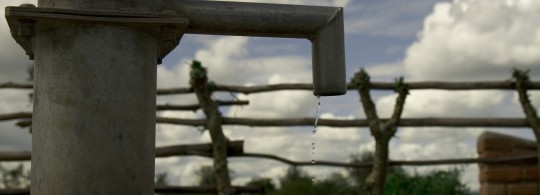
Ferrovial and Amref, an NGO, launched a joint project in 2008 to combat poverty in Tanzania. The objective was to provide drinking water and sanitary infrastructure to thousands of people in the Serengeti District. The initiative was called Maji ni Uhai, which means “Water is Life” in Swahili.
Today, on World Water Day, we turn our gaze to Tanzania, where this project has been ongoing for the last few years. Through Maji ni Uhai, more than 25,500 people have drinking water, a parameter defined by the United Nations as “the availability of at least 20 litres per person per day from a source within one kilometre of the user’s dwelling” (20 l/c/d).
Access to drinking water has increased from 28% to 89% in the five communities where the project has been implemented. These figures far surpass the criteria set out in the Millennium Development Goals, namely to halve the proportion of the population without sustainable access to safe drinking water and basic sanitation.
Maji ni Uhai is a very innovative project. Aside from economic aid, it’s greatest strength is the fact that Ferrovial professionals volunteered to bring the project to fruition. Dozens of our employees travelled to Tanzania, working together and sharing ideas with the local community and the Maji ni Uhai organisation. This project brought together local governments, companies, NGOs and the community to help the most disadvantaged. The approach was recognised with a European Business Award for the Environment and the Codespa Solidarity Award.
The different actions of the Maji ni Uhai project have increased drinking water quality and access, notably improving the health of the area’s youngest residents. Malaria has declined by 34% among children under five, while diarrhoea has been reduced by 75% and skin infections by 50%. The rest of the population also reported progress: illnesses related to water access and quality have fallen by more than 55%.
Maji ni Uhai comprises 140 works, including wells, gravity feed systems, reservoirs, storage tanks and latrines. Training was provided to 1,500 people so that they can manage and maintain this infrastructure. Awareness-raising actions were also performed, promoting good hygiene habits among area residents.
The challenges in providing access to clean water will not be resolved overnight; however, projects like Maji ni Uhai give reason for hope while also encouraging us to help people most in need. Through a commitment to innovative, rigorous, sustainable projects, the Millennium Development Goals can and must become a reality.
Photos of Maji ni Uhai, on Flickr.




There are no comments yet